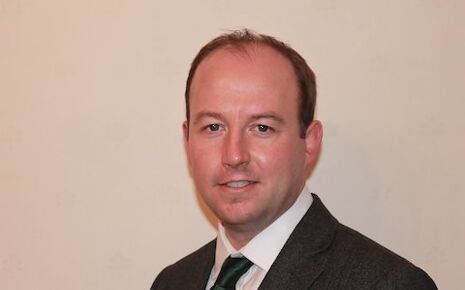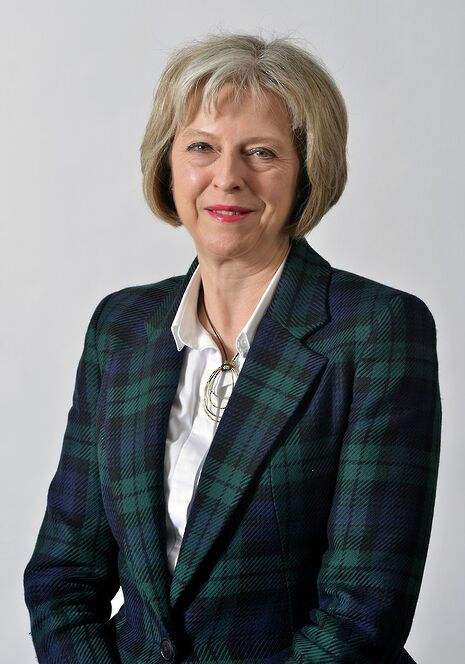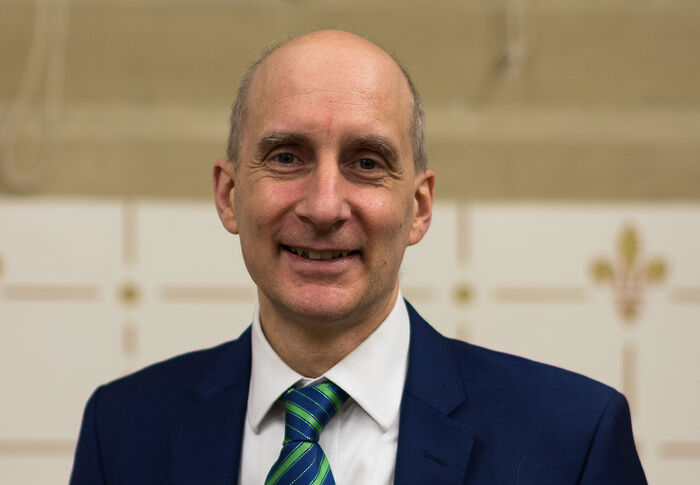PM advisor Nick Timothy: ‘I worry for young people, to be honest’
Nick Timothy, Theresa May’s divisive former co-chief of staff, talks to Theo Demolder about the disastrous general election, the outlook for young people today, and splits in Brexit Britain

Out of power and having shaved off his beard, Nick Timothy’s nickname “Rasputin” now seems rather less apt than it once might have been. However, this new look does make his age a little easier to believe. Timothy is only 37 years old, perhaps now 38 – he mentioned his birthday was coming up soon. Having first joined the Conservatives’ research department at the age of 21, the speed of his rise to be Theresa May’s co-chief of staff has only been eclipsed by that of his fall after the 2017 election. During his one-year tenure between May entering Downing Street and losing her majority, he and Fiona Hill became controversial figures.
“I was staggered at the disrespect they showed on a daily basis. I never hated them. I felt sorry for them and how they measured success by how many enemies they had clocked up,” wrote their former colleague Katie Perrior, who had been director of communications. It was widely reported in the aftermath of the election that the departure of Timothy and Hill was a precondition of many MPs’ continued support for the Prime Minister.
“I’m not that right wing, and most Conservatives aren’t”
However, sitting down with Timothy in the Robinson College bar, I found him a softly-spoken, mild-mannered figure – showing no hints of this firebrand persona. In his answers, too, Timothy seemed keen to conciliate. “I’m not that right wing,” he insisted, “and most Conservatives aren’t” – rejecting the idea that the party could afford to move to the right, given how far to the left Corbyn is, or that they might need to do so to avoid appearing ‘Labour lite’.
“Actually, we shouldn’t reduce politics to a series of tactical calculations; it’s a moral undertaking when you’re trying to do something that’s good for your country. I would say that if you believe that capitalism and free markets are the best way of spreading prosperity then when there’s crony capitalism and broken markets that companies are exploiting and ripping people off, you’re making a grave mistake if you defend that kind of thing or ignore it.” Here, Timothy seemed to maintain his support for the 2017 manifesto – which he played a major part in writing – and in particular the passage within it which offended some on the Tory right by stating that “we do not believe in untrammelled free markets. We reject the cult of selfish individualism… We see rigid dogma and ideology not just as needless but dangerous.”
“Young people are graduating from university with the highest debts in the world”
Of course, that manifesto is now chiefly remembered for the social care policy which was to be dubbed ‘the dementia tax’. Although it would have prevented people from having to sell their homes during their lifetime to be able to afford care, as they currently do, it would only have protected the last £100,000 of a person’s assets from being claimed back after death. Timothy conceded that “it’s fair to say we didn’t communicate it brilliantly – but also it was probably a mistake, with hindsight, to just drop it into the election campaign in the way that we did.”
However, he argues both that “something needs to be done on social care,” and that “the social care policy was intellectually the right kind of approach… In the manifesto itself, it was explicitly framed as a point about intergenerational fairness because that was one of the five challenges we identified in the document.” This, Timothy argues, reflects how protecting more of richer pensioners’ assets would require more money from younger taxpayers.

I asked him how the Conservative government could do a better job of winning over young people in future than this ill-fated policy did. He reflected on being in the first year group to pay tuition fees: “That felt like a big deal to me, and it was just £1000 a year. So I worry for young people, to be honest… Young people are graduating from university with the highest debts in the world – some of whom will have qualifications which are brilliant and will set them up for life, some of whom won’t.
“There’s a question about what should be done in terms of making sure student debt isn’t as high as it is, but the labour market and the housing market are compounding that problem.” Nevertheless, although “we should be aiming to reduce the amount that people pay on average” (he was equivocal when I pushed him on precisely how best to do this), this is only part of the story in Timothy’s mind. “The majority of young people don’t go to university and we don’t do very much for them, so I think there’s a question about what we do for post-18 education in general.”
Timothy sees this as part of a broader back-drop of intra-generational as well as inter-generational unfairness. “What we shouldn’t do is to set this up as a conflict between different age groups because that could be quite counterproductive. Workers across the West are finding life quite difficult at the moment and Britain is part of that. We know real terms incomes in Britain are lower than they were 10 years ago.”
This is the context in which the Conservatives must find a majority-winning platform. I wondered whether there might be lessons to learn from Vote Leave, who convinced working class voters to turn out in 2016 who then either stayed at home or voted for Labour in 2017. Timothy, however, was reluctant to entertain the comparison: “In a normal general election campaign, the dividing line between the parties is normally socio-economic, and in the Brexit campaign the dividing line was much more about culture and identity.”
“The key to winning an election in the future – and this is something the party has to think about – is how do we retain the support of the people we won round in 2017 and go further and appeal to more people from those kinds of places in the midlands and the north of England in particular, while also winning back the support of some of the people we lost, mainly, I think, because of Brexit, in the more liberal south.”
It remains to be seen both how successfully the Conservatives will be able to manage this strategic balancing act and what role Nick Timothy might play in the future of the party. If there is one thing that sticks about his “Rasputin” nickname, it is that Timothy, now an influential multi-newspaper columnist who also recently scored his first front-page byline in The Telegraph, is looking politically hard to kill
 News / Eight Cambridge researchers awarded €17m in ERC research grants27 December 2025
News / Eight Cambridge researchers awarded €17m in ERC research grants27 December 2025 News / Clare Hall spent over £500k opposing busway 24 December 2025
News / Clare Hall spent over £500k opposing busway 24 December 2025 Comment / League tables do more harm than good26 December 2025
Comment / League tables do more harm than good26 December 2025 Comment / The ‘class’ of Cambridge24 December 2025
Comment / The ‘class’ of Cambridge24 December 2025 News / Caius mourns its tree-mendous loss23 December 2025
News / Caius mourns its tree-mendous loss23 December 2025









